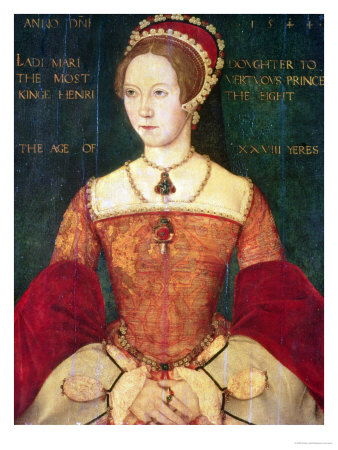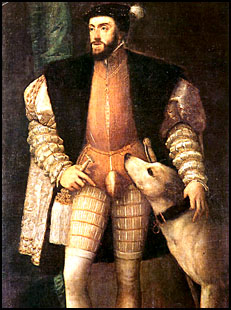Thomas Cromwell: Life Story
Chapter 9 : Cromwell and the Lady Mary
On the fall of Anne Boleyn, Henry’s daughter, who had been degraded from the rank of Princess when Anne’s daughter was born, wrote to Cromwell, requesting him to intercede for her with her father. She had consistently refused to accept the annulment of her parents’ marriage, and had been disgraced and banished from her father’s sight, to live, bullied and humiliated by Anne’s relatives, in the household of the baby Elizabeth. Now, with Anne dead, she hoped to regain her father’s favour. The fact that Lady Mary wrote to Cromwell in the summer of 1536 shows that even Henry’s own daughter knew that, by now, Cromwell was the man he relied on to deal with day-to-day matters.

Cromwell must have been in a quandary. Whilst a King who had had his own wife executed might not baulk at meting out the same treatment to a disobedient daughter, even though he had once dearly loved her, such a step would be controversial, to say the least. In the summer of 1536, Henry had one adult daughter (Mary), an illegitimate son who was on his deathbed (Richmond) and a three-year-old daughter (Elizabeth), child of a woman executed for adultery.
By custom, the succession, if none of these children were legitimate heirs, would fall to James V, King of Scots. If Mary were dead, that would be the most likely outcome, and deeply undesirable to all of England. In addition, proceeding against Mary might bring more than angry words from her cousin, Emperor Charles.

The best route out was to persuade Mary to accept the Act of Supremacy. Cromwell arranged for the Duke of Norfolk – a man of supreme tactlessness – the Earl of Sussex and a Bishop to visit Lady Mary and demand that she take the Oath of Supremacy. She refused.
Pressure had to be stepped up. Cromwell enlisted Chapuys, the Emperor’s Ambassador, to point out to Mary the danger she stood in. Simultaneously, he wrote to her himself, saying:
‘If you do not leave all sinister counsels, I take leave of you for ever and desire you to write to me no more, for I will never think you other than the most ungrateful, unnatural, and obstinate person living, both to God and your most dear and benign father.’
He accompanied this tirade with an obsequious letter for Mary to copy, acknowledging her father as Supreme Head of the Church, rejecting the Pope and agreeing that her parents’ marriage had been unlawful and incestuous. Mary, finally bullied into submission, signed, whilst sending a message to Rome that it had been done with mental reservations.
On 5th July that year, Cromwell wrote to Bishop Gardiner of Winchester (later Mary’s own Lord Chancellor) that “my Lady Mary is a most obedient child to the King’s Highness and is as conformable as any living faithful subject can be.’
Henry probably felt no small measure of gratitude to Cromwell for fixing this problem. Queen Jane, too, was grateful, and she immediately invited Mary to court and showered affection and gifts on her.




